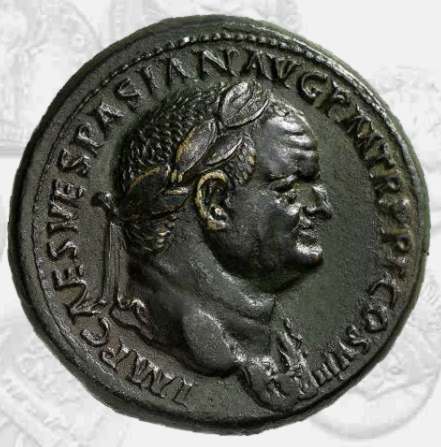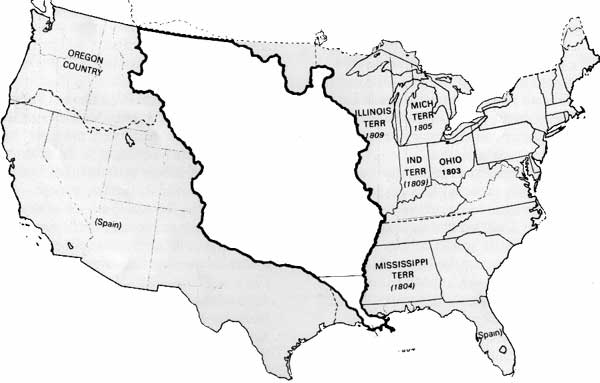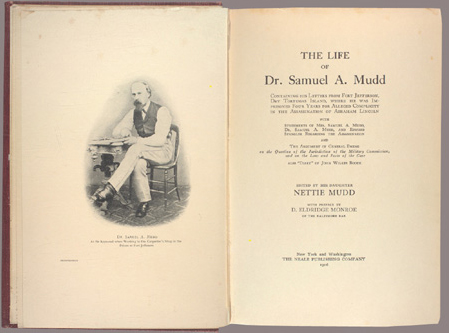
December 20

0069 General Vespasianus occupies Rome.
0069 Death: Aulus Vitellius, Roman commandant of Rhine and 7th emperor, murdered.
0910 Death: Alfonso III de Great, king of Asturias.
1046 By the Synod at Sutri in Italy, German King Henry III dismisses Pope Gregory VI, Benedictus IX & Silvester III and four days later names Bishop Siutger as Pope Clemens II.
1192 Richard the Lionheart is captured in Vienna.
1355 Death: Stefanus IX Uros IV, Dusan king (1331-46), of Serbia (1346-55).


1590 Death: Ambroise Paré, French surgeon, at 80.

1626 Emperor Ferdinand II and Transylvanian monarch Gábor Betlen sign the Peace of Pressburg.

1632 Death: Nicolas Antoine, French catholic pastor who converted to Judaism, executed.
1649 Theaters are banned in Britian by Cromwell.
1669 At the first jury trial in Delaware, Marcus Jacobson is condemned for insurrection and is sentenced to flogging, branding and slavery.
1688 Prince Willem III's troops pull into London.
1699 Peter the Great announces a reorganization of the Russian calendar, decreeing that the New Year will begin on January 1 and not September 1.
1720 Birth: Charles Edward Stuart, better known as Bonnie Prince Charlie or the Young Pretender.
1745 Bonnie Prince Charlie's army meets de Esk.
1749 Death: Pakubuwono II, susuhunan of Mataram Java.
1780 England declares war on the Netherlands.
1787 A revival breaks out among the Shakers of New Lebanon, Indiana, soon igniting a religious fervor among other denominations, especially in Kentucky and other colonial frontier regions.
1790 The first successful US cotton mill to spin yarn begins operation at Pawtucket, Rhode Island.


1808 Birth: Thomas Tinsley Craven, Commander of the Union Navy.
1812 Death: Sacagaweae Shoshone, interpreter for Lewis and Clark.
1813 Birth: Samuel Jordan Kirkwood, Governor of Iowa, US Secretary of Interior (1881-82).
1819 Birth: John Geary, first San Francisco postmaster; will become the first mayor of San Francisco on 1 May 1850.
1820 Missouri enacts legislation to tax bachelors between the ages of 21 and 50. $1 a year for being unmarried.
1830 England, France, Prussia, Austria and Russia recognize Belgium.

1841 Birth: Ferdinand-Èdouard Buisson, in France, educator; will win the Nobel Peace Prize 1927.
1845 Baldwin Institute is chartered in Berea, Ohio, by the Methodists. Changing its name in 1854 to Baldwin University, the college will merge in 1914 with German Wallace College and adopt its present name: Baldwin Wallace University.

1860 US Civil War: South Carolina votes 169-0 for an Ordinance of Secession and becomes the first state to secede from the American Union. It will not be readmitted until 1868.
1862 US Civil War: Brigadier-General Nathan B. Forrest occupies Trenton, Kentucky.
1862 US Civil War: The Vicksburg campaign commences. (See Jan 3)
1865 Birth: Maude Gonne, Irish nationalist; called the Irish Joan of Arc.
1868 Birth: Harvey S. Firestone, industrialist, founder of Firestone Tire and Rubber Company.
1875 Death: Michail P. Pogodin, Russian historian, writer, at 75.
1876 Death: Hannah Omish, at 12 the youngest person ever legally hanged in the US.
1876 Birth: Walter S. Adams, US astronomer, director of Mount Wilson (1923-46).

1880 Battle at Bronker's Spruit: Transvaal farmers defeat Britten.


1893 The first state anti-lynching statute is approved, in Georgia.
1895 Birth: Susanne Langer, US philosopher, educator, author; Philosophy in a New Key: A Study in the Symbolism of Reason, Rite, and Art.
1901 Birth: Robert Van de Graaff, in Alabama, physicist; Mobility of Gaseous Ions.

1902 Birth: Max Lerner, educator, author, US New York Post columnist.
1902 Birth: Sidney Hook, anticommunist philosopher, writer; From Hegel to Marx: Studies in the Intellectual Development of Karl Marx, The Metaphysics of Pragmatism, The Hero in History: A Study in Limitation and Possibility, Paradoxes of Freedom. Died in 1989.

1906 Birth: Dick White, head of British secret service (MI5/MI6).
1906 Venezuela, under Vice-President Gomez, attacks the Dutch fleet.

1914 WW1: The first battle of Champagne begins with the French attacking German machine-gun positions.
1915 WW1: Russian troops overrun Qom, Persia.

1915 Birth: Aziz Nesin, writer.

1918 Volkishness: Baron Sebottendorff plans to kidnap Kurt Eisner at a rally in Bad Abling. (Roots)
1919 The US House of Representatives passes legislation restricting immigration.
1922 14 republics form the Union of Soviet Socialistic Republics (USSR).
1922 The Polish parliament selects Stanislaw Wojcieckowski as president.




1928 The first international dogsled mail departs Minot, Maine for Montréal, Québec. It will arrive 14 January 1929.
1933 A government headed by Ion Duca wins at the polls in Romania.
1933 Holocaust: The Aryan Lawyers' Association demands that the Austrian Ministry of Justice expel all Jewish lawyers. (Edelheit)
1936 Holocaust: Walter Gross, chief of the Nazi Racial Bureau, announces a nationwide racial propaganda campaign.

1937 The Jewish Party in Romania fails to win a single seat during parliamentary elections.
1938 Vladimir Kosma Zworykin of Wilkinsburg, Pennsylvania, patents the iconoscope television system. The system will catch on, but the name won't.
1940 Holocaust: New anti-Semitic laws are introduced in Bulgaria. Other measures against Freemasons and secret societies are also instituted. The Jewish population of Bulgaria at this time is about 50,000.


1941 WW2: Japanese troops land on Mindanao.

1942 WW2: Japan bombs Calcutta for the first time.



1945 Karl Renner is elected first president of the new Second Austrian republic.
1945 Rationing of car tires ends in the US.
1951 The EBR-I (Experimental Breeder Reactor-I) ushers in a new era in nuclear history when it becomes the first reactor to generate useable amounts of electricity from nuclear energy. It accomplishes this feat by lighting four light bulbs this day at the National Reactor Testing Station of Argonne National Laboratory, Butte County, Idaho. EBR-I will be registered as a National Historic Landmark in 1966.
1956 The Montgomery bus boycott ends after a US Supreme Court decision calling for the integration of the public bus system is implemented. Montgomery, Alabama, removes its race-based seat assignments on its buses.
1956 A military coup under Colonel Simbolon in takes place in Sumatra.
1960 Holocaust: The last Auschwitz commandant, Richard Bäer, is arrested in German Federal Republic.

1963 Massemba-Debate is elected President of Congo-Brazzaville.
1963 The Berlin Wall is opened for the first time. It will remain open for the holiday season, but will closed again on 6 January 1964. 4,000 people cross over to visit relatives during this period.
1964 Levi Eshkol forms an Israeli government.
1965 Death: Egon Freiherr von Eickstedt, German anthropologist, at 73.
1966 A Nuclear Planning Group is established in Brussels.
1966 The US performs a nuclear test at the Nevada Test Site.
1967 The Nam: It is recorded that there are now 474,300 US soldiers in Vietnam.
1970 In Poland, Communist leader Wladyslaw Gomulka resigns after riots and is replaced by Edward Gierek.
1974 Ethiopia becomes a socialist one-party state.
1976 Israel's Prime Minister Yitzhak Rabin resigns.
1977 Red Army Faction terrorist Knut Folkerts is sentenced to 20 years.
1978 H.R. Haldeman, Nixon's White House chief of staff, is released from jail.
1979 Kim Jae-kyu, head of the Korean Central Intelligence Agency, is sentenced to death for the assassination of President Park Chung-hee in Seoul.
1980 The USSR formally announces the death of Alexei Kosygin.
1981 Romuald Spasowski, Polish ambassador in Washington, is granted political asylum in the United States.
1983 PLO chairman Yasser Arafat and 4,000 loyalists evacuate Lebanon.
1989 The United States invades Panama and installs a new government but initially fails in its key objective of seizing strongman Manuel Antonio Noriega.
1990 Desert Shield: The Pentagon warns Saddam Hussein that US air power is ready to attack on 15 January 1991.
1990 Russian Foreign Minister Eduard Shevardnadze, a key figure in five years of Soviet reform that helped end the Cold War, resigns.
1990 The closure of Maerdy Colliery, the last remaining pit in the Rhondda, ends more than a century of mining.

1991 Death: Fop I. Brouwer, biologist; Everything That Lives & Grows.
1992 Slobodan Milosevic is reelected as President of Serbia.
1993 Death: W. Edwards Deming, US economist; advisor to Japan after WW2, at 93.
1994 Death: Dean Rusk, US Secretary of State (1961-69), at 85.
1995 NATO takes over peacekeeping from the UN in Yugoslavia and moves quickly to sweep away key roadblocks in Sarajevo.



2001 An Iraqi civil engineer who defected in August claims that Sadam Hussein has accelerated work on biological, chemical, and nuclear weapons.

2001 Pakistani troops kill an al-Qaeda fighter and recapture about a dozen others, one day after fugitives overpowered border guards.
2001 The last remaining building at the WTC is taken down. (Dec 20th WTC images.)
2001

2002

2003

2004

2004

2004

2004

2004

Visit:




 Visit:
Visit:

Click Here to email the History: One Day At a Time webmaster.